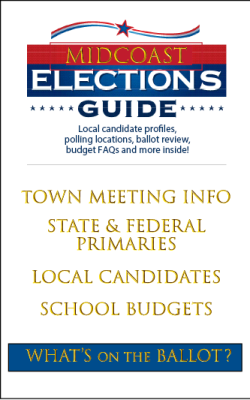Did Ken Gross really say that?
Last Tuesday, I went to the Camden Select Board candidates’ forum. It was pretty bland stuff until Ken Gross, leader of Save the Dam Falls, answered a question about the Montgomery Dam. He said it shouldn’t be touched because it’s an integral part of the Bok-Olmsted Brothers legacy at Harbor Park.
Ken knows – or should know – that this isn’t true. A few weeks ago, he sat through historian Jennifer Gromada’s presentation to her fellow library trustees about the real Harbor Park legacy.
Mary Louise Curtis Bok hated Montgomery Dam. But she didn’t own it and couldn't do anything about it. So she told the Olmsteds to screen it with plantings. Which is why you can’t see it from the amphitheater, centerpiece of their landscape design.
Oops!
Ken’s reasons for not touching Montgomery Dam change with the tides. Last year, it was because pre-European Indigenous settlements had never been found around Megunticook Lake. Indigenous people ate alewives and spent part of the year living near rivers. No sites, no alewives. So why modify the dam for fish migration today if they never lived there? It would amount to introducing an invasive species.
But then Maine Historic Preservation Commission Senior Archaeologist Arthur Spiess confirmed that he had found two Indigenous settlements around the lake. He said there were probably a lot more, but they’re underwater today. Two private landowners also said that they have sites on their properties.
Oops, again!
Abandoning archaeology, Ken now claims that “no historical evidence” – meaning documents – proves that alewives migrated up the Megunticook River. This, too, turns out to be wrong. The documents exist.
Another oops!
Fortunately, we have two excellent candidates running for Select Board this year. Incumbent Sophie Romana and former Board member Susan Dorr have said they will support recommendations from the Town’s Megunticook River Citizens Advisory Committee. MRCAC has been analyzing options for restoring the river to a more natural condition and protecting our watershed for future generations. With the Select Board’s approval, their recommendations will go to a public vote in November.
Three strikes and you’re out, Ken. Back to the bench.
Robert Wasserstrom lives in Camden. He has testified as a historical expert in major indigenous land claims and environmental cases.































